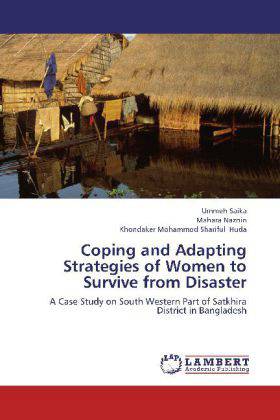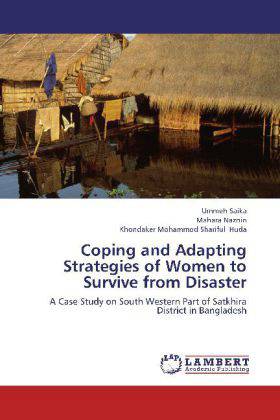
Bedankt voor het vertrouwen het afgelopen jaar! Om jou te bedanken bieden we GRATIS verzending (in België) aan op alles gedurende de hele maand januari.
- Afhalen na 1 uur in een winkel met voorraad
- In januari gratis thuislevering in België
- Ruim aanbod met 7 miljoen producten
Bedankt voor het vertrouwen het afgelopen jaar! Om jou te bedanken bieden we GRATIS verzending (in België) aan op alles gedurende de hele maand januari.
- Afhalen na 1 uur in een winkel met voorraad
- In januari gratis thuislevering in België
- Ruim aanbod met 7 miljoen producten
Zoeken
Coping and Adapting Strategies of Women to Survive from Disaster
A Case Study on South Western Part of Satkhira District in Bangladesh
Ummeh Saika, Mahara Naznin, Khondaker Mohammod Shariful Huda
Paperback | Engels
€ 70,45
+ 140 punten
Omschrijving
Disaster can occur at any time, in any place, in any dimension and may owe as much to the circumstances as to the scale of the event. With 140 million people, Bangladesh is one of the world s densest nations and also one of the most vulnerable to the impacts of climate change. Bangladesh is widely known as a land of natural disasters and is highly vulnerable to flood, cyclone and river erosion. Every year, natural disasters have widespread effects on Bangladesh, touching every corner of the country. Due to limited resources, Bangladesh does not have the capacity to ensure that appropriate measures are taken to mitigate the damage. Too often women are primarily perceived as the main victims of climate change and not as positive agents of change and contributors to livelihood adaptation strategies. Women have been willing and able to take an active role in what are traditionally considered male tasks in responding to disasters. In general, women have proved effective in mobilizing the community to respond to disasters and in disaster preparedness and also mitigation.
Specificaties
Betrokkenen
- Auteur(s):
- Uitgeverij:
Inhoud
- Aantal bladzijden:
- 148
- Taal:
- Engels
Eigenschappen
- Productcode (EAN):
- 9783659159855
- Verschijningsdatum:
- 24/07/2012
- Uitvoering:
- Paperback
- Afmetingen:
- 152 mm x 220 mm
- Gewicht:
- 227 g

Alleen bij Standaard Boekhandel
+ 140 punten op je klantenkaart van Standaard Boekhandel
Beoordelingen
We publiceren alleen reviews die voldoen aan de voorwaarden voor reviews. Bekijk onze voorwaarden voor reviews.









